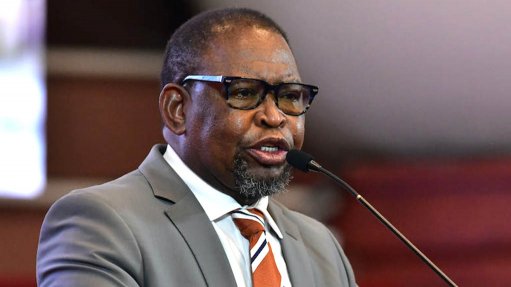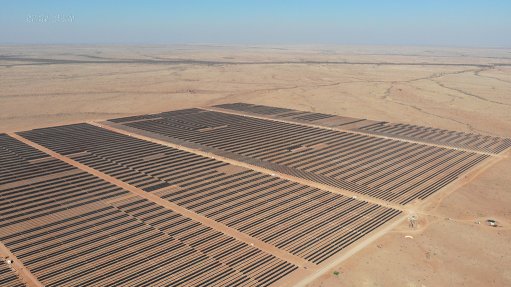Nersa requests more information before making Eskom tariff determination
The National Energy Regulator of South Africa (Nersa) has requested additional information from Eskom relating to its regulatory clearing account (RCA) application arising from the second multiyear price determination period (MYPD2), which was in operation between 2010 and 2013.
For this reason, Eskom’s RCA application did not feature on the agenda of the energy regulator’s meeting on May 29, despite earlier indications that the electricity subcommittee might have been ready to make a recommendation to the meeting.
The utility is hoping to claw back ‘prudently incurred’ expenses through the RCA submission, which would be realised through an upward adjustment to the 8% tariff increase already approved for introduction on April 1, 2015.
Eskom would then probably prepare similar submissions for the MYPD3 control period, which runs from 2013 to 2018, having indicated that the 8% yearly increases granted by Nersa for the five-year period will leave it with a R225-billion financial shortfall – Eskom applied for yearly increases of 16%.
Nersa spokesperson Charles Hlebela tells Engineering News that the electricity subcommittee, which is chaired by full-time regulatory member for electricity Thembani Bukula, has requested additional information from Eskom before making a final recommendation.
That recommendation could then be considered at the meeting of the energy regulator meeting, which is set down for July 30.
The energy regulator meetings, which are open to the public, usually take place monthly, but Nersa is scheduled to have a strategy planning session in the last week of June.
Bonuses & Sustainability
Meanwhile, senior executives at Eskom have agreed to forgo their bonuses for the financial year 2013/14 in light of the financial constraints afflicting the utility and ahead of possible Cabinet deliberations on additional future support for the utility.
Public reaction to executive bonuses at Eskom has been extremely negative over the past few years, particularly as the depth of South Africa’s power crisis came to be known.
In 2012/13, total remuneration for the utility’s executive and nonexectitive directors and executive managers rose to R57.5-million from R54-million in the prior year, with former CEO Brian Dames and then finance director Paul O’Flaherty accounting for R14.4-million of that total. The other eight executive managers collectively earned R36.6-million last year, while the group’s nonexecutive directors collectively took home R6.4-million.
Remuneration contracts for Eskom executives are made up of a guaranteed cash portion and compulsory benefits, as well as short- and long-term incentives.
Eskom will not be drawn on the rand value of the bonuses forfeited, nor how the decision was likely to affect the total executive remuneration charge for 2013/14. But interim CEO Collin Matjila has made a direct link between the decision and the utility’s financial sustainability.
Matjila says that, by agreeing to forgo their annual performance bonuses, Eskom’s top executives have acknowledged the financial constraints and their role in helping to cut costs.
Eskom initiated a business productivity programme in 2013 to extract efficiencies and cut waste. And, at the start of the current financial year, which began on April 1, a special joint committee, comprising board and executive managers, was established to consider a range of “nonconventional sustainable funding solutions, including equity/equity-like instruments”.
Eskom will present a “comprehensive sustainability strategy” to the economic cluster of Ministers by the end of June, outlining proposed solutions to its current financial, operational and asset-creation problems.
The utility has been working with the Department of Public Enterprises, the National Treasury and the Department of Energy to find ways to deal with its shortfall and has also reportedly canvassed the possibility of a further equity, or quasi- equity, injection of R50-billion. The intention is to gain Cabinet approval for the strategy ahead of Eskom’s July annual general meeting.
Newly appointed Public Enterprises Minister Lynne Brown has promised to move with some speed in tabling the matter before Cabinet once she has had consultations with her cluster counterparts, Finance Minister Nhlanhla Nene and Energy Minister Tina Joemat-Pettersson.
“I’m quite committed to ensuring that all of this happens in adequate time.”
Comments
Press Office
Announcements
What's On
Subscribe to improve your user experience...
Option 1 (equivalent of R125 a month):
Receive a weekly copy of Creamer Media's Engineering News & Mining Weekly magazine
(print copy for those in South Africa and e-magazine for those outside of South Africa)
Receive daily email newsletters
Access to full search results
Access archive of magazine back copies
Access to Projects in Progress
Access to ONE Research Report of your choice in PDF format
Option 2 (equivalent of R375 a month):
All benefits from Option 1
PLUS
Access to Creamer Media's Research Channel Africa for ALL Research Reports, in PDF format, on various industrial and mining sectors
including Electricity; Water; Energy Transition; Hydrogen; Roads, Rail and Ports; Coal; Gold; Platinum; Battery Metals; etc.
Already a subscriber?
Forgotten your password?
Receive weekly copy of Creamer Media's Engineering News & Mining Weekly magazine (print copy for those in South Africa and e-magazine for those outside of South Africa)
➕
Recieve daily email newsletters
➕
Access to full search results
➕
Access archive of magazine back copies
➕
Access to Projects in Progress
➕
Access to ONE Research Report of your choice in PDF format
RESEARCH CHANNEL AFRICA
R4500 (equivalent of R375 a month)
SUBSCRIBEAll benefits from Option 1
➕
Access to Creamer Media's Research Channel Africa for ALL Research Reports on various industrial and mining sectors, in PDF format, including on:
Electricity
➕
Water
➕
Energy Transition
➕
Hydrogen
➕
Roads, Rail and Ports
➕
Coal
➕
Gold
➕
Platinum
➕
Battery Metals
➕
etc.
Receive all benefits from Option 1 or Option 2 delivered to numerous people at your company
➕
Multiple User names and Passwords for simultaneous log-ins
➕
Intranet integration access to all in your organisation


















